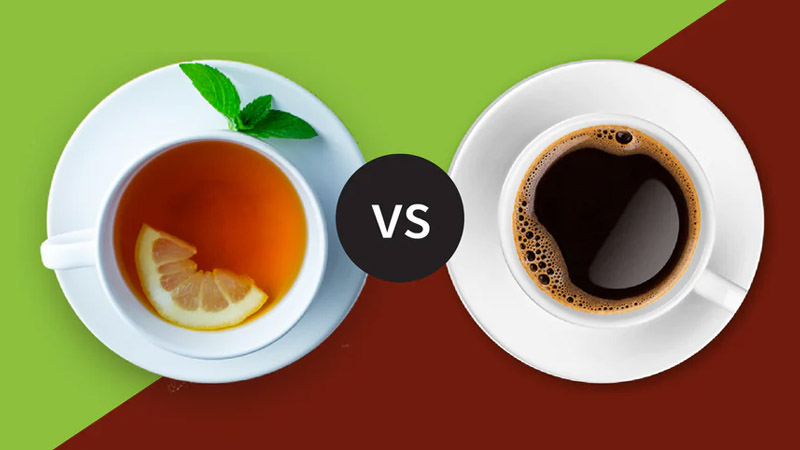Tea, made from the dried leaves of the Camellia sinensis plant, stands as the second most consumed drink globally, after water. When these leaves are crushed, dried, and fermented, they produce black tea. However, green, white, and oolong teas also come from the same plant but undergo different processing methods. On the other hand, herbal teas derive from other plant parts like roots and seeds.
Meanwhile, coffee, another global favorite, comes from the roasted seeds of the coffee cherry, known as coffee beans. The composition of each coffee cup can differ based on the brewing method, roast level, and grind size.
Health Benefits of Tea:
- Drinking tea regularly might reduce the risk of early death, heart disease, stroke, and type 2 diabetes.
- High in polyphenols, tea might help regulate cholesterol, blood pressure, sugar and fat metabolism, insulin sensitivity, and body temperature.
- L-theanine, an amino acid in tea, might have brain-protective qualities, potentially helping prevent cognitive decline.
- Preliminary studies suggest green and black tea might have anti-cancer properties, although human studies yield inconclusive results.
Health Benefits of Coffee:
- Regular coffee consumption might reduce the risk of several diseases, including liver and heart diseases, brain conditions, and type 2 diabetes.
- Coffee might provide properties like lowering blood sugar temporarily, protecting brain cells, reducing inflammation, and lowering oxidative stress.
- There’s a potential link between regular coffee consumption and reduced Parkinson’s rates.
- It might also offer protection against Alzheimer’s, and its caffeine content enhances energy and alertness.
Comparative Insights:
- Antioxidants: Both beverages are rich in polyphenols, but tea generally contains more. Green tea contains high levels of the antioxidant epigallocatechin-3 gallate (ECG), while black tea is rich in theaflavins. In comparison, coffee has antioxidants like chlorogenic and caffeic acid, which might not offer as many health benefits as those in tea.
- Caffeine Content: While caffeine can boost energy and focus, excessive intake can lead to side effects like anxiety and sleep disturbances. Tea generally has less caffeine than coffee. For instance, an 8-ounce mug of black tea has about 47 milligrams of caffeine, whereas the same amount of coffee has 96 milligrams.
In Conclusion: Both coffee and tea are generally safe with numerous potential health benefits. While tea might have a slight edge in terms of health benefits, the best choice often boils down to individual preference and cultural influences. Ensure moderation, especially concerning caffeine intake.

